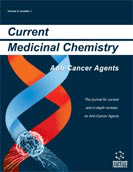Abstract
Pathways of induced realization constitute strictly regional conglomeration of antiapoptosis effect in terms of the injury to the cell genome and of the preselectivity of further characterized biology of systemic projection as metastatic spread. One might consider it significant in terms of the genotoxicity of malignant transformation as it is a step-wise recharacterization of the metastatic cascade. It is particularly significant to consider injury as an agonist effect of unique and far-reaching effect and in terms of sequential amplification and reconstitution, beyond simple dimensions of the given individual neoplastic cell. One might therefore consider the impact of biologic agonists beyond simple developmental origin of stem cells or as etiologic dissemination of potential local and systemic spread effect arising as genomic toxicity. Carcinogenesis hence constitutes a mirrored model in the constitutive re-characterization of unique features in genomic serial transformations beyond simple enumeration of toxic agents or of pathogenesis of the individuality of the malignant cell in transformation.
Keywords: anti-apoptosis, stem cells, metastasis, proliferation.






















